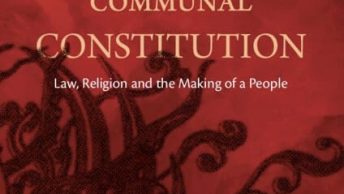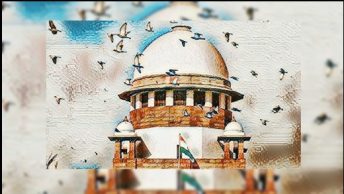In her post on the blog symposium on Tarunabh Khaitan’s paper about democratic deconsolidation in India, Professor Kim Lane Scheppele makes the case for “systemic constitutional analysis.” She endorses a pivot away from the traditional approach of comparative constitutional law wherein parts of the constitutional order are treated and studied as separate and unrelated silos and asks for research that places constitutional events in the broader context of the operation of democratic institutions and observe the state of constitutional rule of law from that lens.
In this post, along the lines of Professor Khaitan’s analysis, I argue that the employment of exclusionary legislative procedures in the passage of crucial legislations has been a crucial mode of executive takeover on the rule of law in India. In his paper, Professor Khaitan notes that the present government has already undermined accountability of its legislative power by, inter alia, routinely avoiding bicameral scrutiny by using the money bill route and by employing unfair legislative procedures to favour the sitting government. The paper uses the examples of the Lok Sabha speaker putting certain bills to vote without discussion, delaying a motion of no-confidence and using the budget before a general election, to announce populist changes. In this post, I attempt to add evidence from the past few months to show that the government continues to sustain the pattern of employing unfair legislative procedures. It is critical to place these procedural subversions in the broader context of the democratic decay laid out in recent scholarship on India to ensure that procedural impropriety is not treated as a severable, or more worryingly, tolerable part of the substantive human rights concerns with recent and upcoming legislations.
Farm Bills and Labour Laws
India oversaw a historic protest against the recently passed bills that transform India’s agricultural economy from being state-led to market-led. While it is inarguable that these new laws carry significant concern about substantive human rights and federalism, the discursive focus around these laws and the ensuing protests has almost exclusively been limited to these concerns alone. In September 2020, these contentious bills were passed by the Rajya Sabha of the Parliament, quite incredibly, by voice-vote and not by counting each vote by division, as would be routine. A voice vote is generally used in matters where there is general consensus and as per the Rules of Procedure and Conduct of Business in the Council of States (Rajya Sabha), the speaker is mandated to conduct vote by division if the employment of voice-vote is challenged by any member. Despite repeated requestion from opposition members, no vote by division was carried out. As scholars have pointed out, this made the Upper House redundant and was tantamount to an act of constitutional subterfuge. It is pertinent to note the ruling party has a relatively weak majority in the Upper House, which only reemphasises the importance of a vote by division.
Further, the bills concerning agricultural reform and the upcoming labour reform have come under heavy criticism for failing to conduct any or inadequate pre legislative public consultation. In the case of the farm bills, it came to light that government’ agriculture ministry had no record of any pre-legislative consultation conducted by it for these bills, which was in contradiction to the ministry’s claim in the Supreme Court. In the case of the labour codes, the one-day video conference pre-legislative consultation was boycotted by most major trade unions of the country, amidst allegations of the consultation being rushed, repeated ignorance of requests for physical meetings and the entire process being tokenistic. In both cases, it seems clear that laws drastically affecting the lives of the working class were made without accounting for the lived experience of those affected. The reform efforts are woefully inadequate if they are conceived to the exclusion of voices on the ground who deal with the labour and agricultural market practices on a daily basis.
EIA Notification
The concerns around compliance with parliamentary and legislative procedure and best practices is not limited to the contentious agriculture laws. On April 11, 2020, the Ministry of Environment and Forests published the Draft Environment Impact Assessment Notification020 which is India’s premier legislative instrument for social and environmental audits. The Notification is a storehouse for the rights of a large proportion of the indigenous populations of the country who live in, and depend on, fragile ecosystems like coastlines and forests.
Curiously, for an enactment that impacts the vast majority of India’s rural population, the notification was made available only online and only in English and Hindi when published for public consultation. As pointed out here, those two languages cover less than half of the country’s population and only a quarter of the Indian population has access to the internet, making it likely that the most vulnerable stakeholders in these ecosystems do not speak English and have no meaningful access to the notification or public consultation which took place around it. It significantly affects millions of forest-dwelling and coastal communities and it is telling that the Environment Ministry actively resisted translating the draft notification despite being directed to do so. In the absence of translations into vernacular languages, the objections of the most vulnerable stakeholder of the legislative instrument in question have been virtually excluded. The government was later pulled up by two different High Courts for failing to give effect to meaningful public consultation.
Criminal Law Reform Committee
In May 2020, the Union Ministry of Home Affairs constituted a Criminal Law Reform Committee to recommend reforms for India’s colonial era criminal law. While the committee has been severely criticised for its opaque functioning and exclusionary methodology, the sharpest critique has been with regard to its composition. The committee has been widely condemned for having no representation for women, lower castes, religious and sexual minorities. It seems absurd that a committee that has delineated its own mandate to include a review of, inter alia, sexual offences, mob lynching and sedition, will do so with an all-male, upper caste committee. Criminal law reform asks intricate questions like that of the adequacy of punishment, the centrality of reform in penology and the minimisation of abuse of process by the state. These questions cannot be answered without the perspective of marginalised groups, who are major stakeholders in criminal reform given that they disproportionately bear the brunt of it.
The Role of Participation in Law-Making
These seemingly isolated procedural omissions seem to constitute a noticeable pattern. That pattern suggests that the present Indian parliament (which, given the electoral super majority held by the ruling dispensation, is, for all purposes, the present Indian executive), sees itself as a technocratic expert body that derives its legitimacy, and the legitimacy of its work, from its membership to the electoral majority. This vision of itself, and its role in Indian democracy, is one that is at odds with the liberal democratic aspirations of the Indian Constitution.
The democratic logic behind the employment of institutions and practices that assist the law-making function of legislators, like green-papers, public consultations, Parliamentary Standing Committees, and even bicameralism (to some extent) is not just to provide mere assistance to improve law-making efficiency, but also to imbue legitimacy through their action. These institutions provide a platform for real-time engagement with the changing aspirations of constituencies and the changing material conditions the constituents act under. The belief that electoral victory guarantees a continuing consent to legislate with procedural impunity is not just misguided, but also engenders a political lock-out, as explained below, for several groups of voters.
In a country as vast and heterogenous as India, almost all laws have disparate and intersectional impacts which cannot been foreseen even by the most accomplished parliamentarians. Moreover, many of these intersectional groups and their interests are barely represented in the broad-based electoral campaigns that super majorities are usually elected on. For these groups, these representative institutions are the only foray into political power and therefore, the exclusion of these procedures and institutions is a matter for constitutional concern. As argued here, exclusion (or locking out) from a minimum share in political power (or the ability to influence political decisions) is a breach of one of the foundational tenets of liberal constitutionalism.
As some scholars have argued, policy-making has traditionally failed to correct the imbalances in political power by eschewing the question of how the process of making the law can be more inclusive, and having an overt focus on more policy “outcomes” based discussions. In my submission, this is equally true for law-making processes as well, as highlighted through the abovementioned examples. Law-making ought to be a dynamic process where representative institutions are used to build a relationship around traditional representation to have a better and continuing accountability for the law-making power. As it stands today, the present Indian parliament seems to completely disregard these representative institutions and that is cause for major constitutional concern. While concerns with the substantive outcomes of these legislations are very much warranted, they should not come at the cost of whitewashing the lapses in the process of making these legislations.
Conclusion
In my submission, the exclusion of representative para-parliamentary institutions in the process of law-making, fits in with the analysis in Professor Khaitan’s paper and adds to the wealth of evidence pointing towards the ill-health of India’s constitutional rule of law. Acting unilaterally, to the exclusion of any accountability from relevant stakeholders, is yet another instance of the political executive in India (acting through its membership in the electoral majority at the Parliament) continuing to act as the sole repository of state power.
V.G. Shreeram is an advocate at the Bombay High Court and his practice areas include labour law and human rights. His twitter handle is : @vg_shreeram





